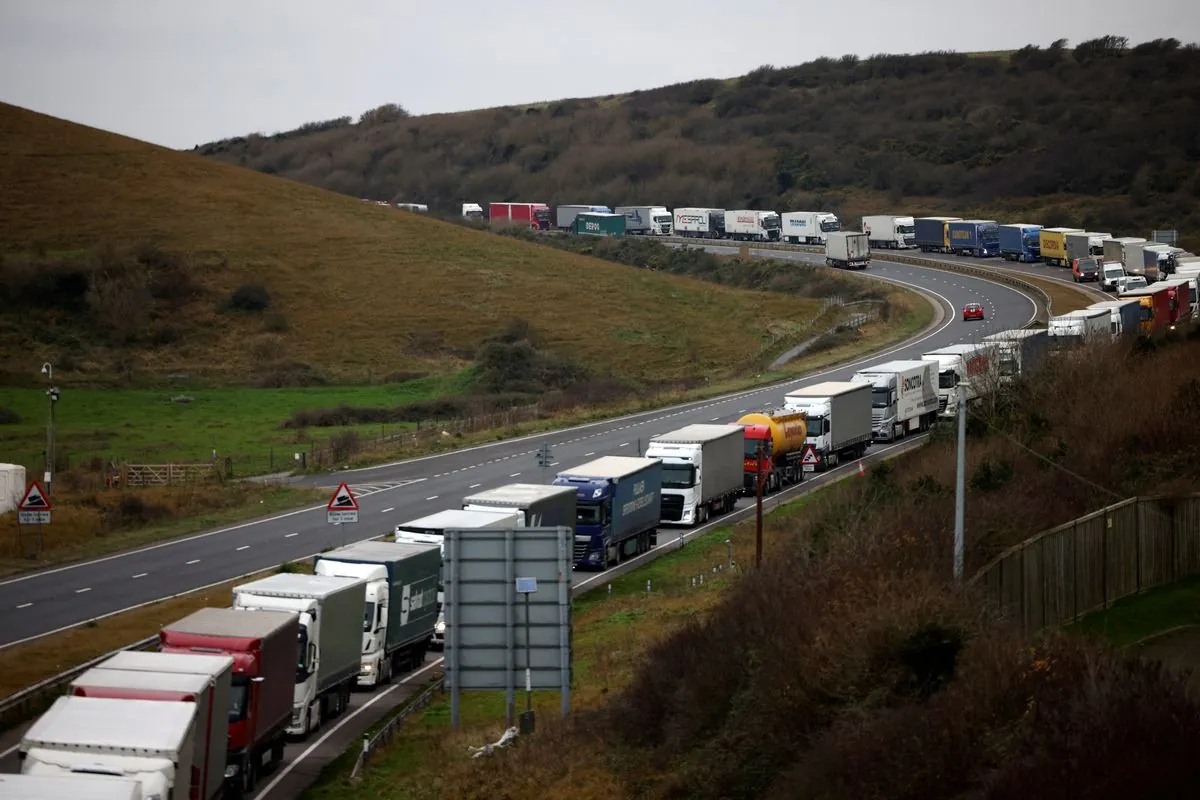The implementation of a new European Union (EU) border control system, scheduled for November 10, 2024, has raised concerns about potential disruptions to the UK's food supply chain. Logistics UK, a leading trade organization, has issued a warning about the possible impact of the Entry/Exit System (EES) on fresh food deliveries during the critical pre-Christmas period.
The EES, designed to enhance border security, will require non-EU passengers at Dover to undergo fingerprint and facial recognition checks. This new system is part of the Schengen Area's efforts to modernize border control, which has been evolving since the early 2000s. However, the increased processing time could lead to significant delays and interruptions in the flow of goods.
According to calculations, the EES could extend the processing time for a car with four occupants from under 60 seconds to seven minutes. Research from Imperial College London suggests that each additional minute of processing time could add approximately 10 miles to queues. In a worst-case scenario presented to Parliament by Ashford council in Kent in January 2024, the scheme could result in 14-hour delays for passengers.
Nichola Mallon, head of trade at Logistics UK, expressed concern about the potential impact on the supply chain:
"If the EES is implemented as planned, I'm afraid we're facing huge upheaval in the supply chain."
The organization estimates that border delays could cost £1.30 per minute, with a 14-hour hold-up adding an extra £1,100 per truck – costs that would likely be passed on to consumers.
The Port of Dover and Eurotunnel, which together handled 54% of all UK trade with continental Europe last year, play a crucial role in the import of essential food items. The UK imports about 40% of its food supply, making efficient border crossings vital for the nation's food security.
To address these concerns, the UK government announced £10.5 million in funding in August 2024 to support preparations for the EES. This funding will be divided equally between Dover, Eurostar, and Eurotunnel for infrastructure improvements. However, Logistics UK argues that more comprehensive measures are needed, including a nationwide publicity campaign and contingency plans.
The logistics industry, which contributes over £127 billion to the UK economy annually, is calling for increased public awareness and clear guidance. While preparations for a publicity campaign are underway, details remain scarce. Previous campaigns have utilized motorway gantries, leaflets at service stations, and online resources to disseminate information.
As the implementation date approaches, it is crucial for travelers and businesses to stay informed about the new requirements. The EES represents a significant change in border control procedures, and its successful implementation will require cooperation between the UK and EU authorities, as well as thorough preparation by all stakeholders involved in cross-border trade and travel.
